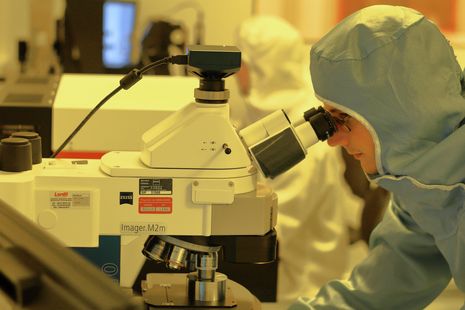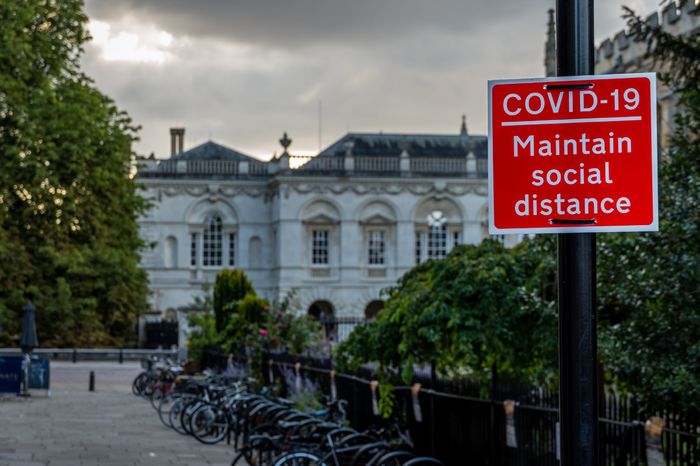University urged to make Covid-19 vaccine accessible for all
An open letter by Universities Allied for Essential Medicines argues that “access to healthcare and health technologies should not be a luxury”.

Any medicine developed at Cambridge for tackling COVID-19 should be made “accessible to everyone worldwide,” a recently released open letter by Universities Allied for Essential Medicines (UAEM) demands.
UAEM is an international student-led organisation with members in over 20 countries who believe: “universities have an opportunity and a responsibility to improve global access to public health and necessary medicines.”
The open letter calls on the University to make “COVID-19 related vaccines, therapeutics and diagnostics developed at the University of Cambridge accessible and affordable to everyone worldwide, regardless of socio-economic status or country of residence.”
The letter highlights various different research projects going on at the University which have the potential to “provide great benefits to society during the COVID-19 pandemic and beyond.” Foremost amongst these projects is the vaccine candidate being developed by the Department of Veterinary Medicine in collaboration with DIOSynVax. The letter stresses: “this research can only alter the course of the pandemic IF global equitable access is prioritised.”
However, according to UAEM, Cambridge’s “current policy for intellectual property licensing through Cambridge Enterprise Limited is not sufficient for ensuring that the products of COVID-19 research at the University will be accessible to all members of the public.”
Licensing relates to the terms under which the owner of the Intellectual Property (IP) grants permission to a licensee to manufacture, adapt or sell the IP. In this case it would likely be the University granting permission to a pharmaceutical company to manufacture and sell a product developed as a result of research by the University.
This is in contrast, UAEM argues, to the University of Oxford, who announced that they will “expedite access to Oxford IP to enable global deployment at scale of associated products and services to address the COVID-19 pandemic.”
“The default approach of the University and OUI (Oxford University Innovation)...will be to offer non-exclusive, royalty-free licences to support free of charge, at-cost or cost + limited margin supply as appropriate, and only for the duration of the pandemic, as defined by the WHO.”
Meanwhile the University of Cambridge’s intellectual property licensing rules are accused by UAEM of failing to adhere to Articles 12 and 15 of the International Covenant on Economic, Social and Cultural Rights: that everyone has the rights “to the enjoyment of the highest attainable standard of physical and mental health” and “to enjoy the benefits of scientific progress and its applications.”
The open letter goes on to demand that the University “support global coordination to improve global and public capacity for vaccines therapeutics, and diagnostics production and ensure that public health priorities drive the production and distribution of any new COVID-19 vaccines, therapeutics and diagnostics.”
It also asks the University to commit to socially responsible licensing, improving the transparency of licensing IP, and ensuring transparency in clinical trials.
The open letter forms part of the wider ‘Free the Vaccine’ campaign targeting universities and other institutions across the world - including UCL, Imperial and Oxford - in an attempt to secure equitable access for COVID-19 health technologies.
One aspect of the campaign is mapping public funding of COVID-19 research in universities. According to UAEM, the University of Cambridge received at least £4,816,600 of public funds from UKResearch and Innovation.
UAEM said to The Cherwell that the “contribution of the public is virtually never reflected in the pricing, accessibility, and affordability of the final drug.”
“The public deserves a return on public investment by ensuring that COVID-19 vaccines are the global public goods which the UK public want – there was a recent survey by [the Wellcome Trust] which supported the overwhelming public majority behind universal equitable access to a vaccine.”
The University has been contacted for comment.
 News / Report suggests Cambridge the hardest place to get a first in the country23 January 2026
News / Report suggests Cambridge the hardest place to get a first in the country23 January 2026 Comment / Cambridge has already become complacent on class23 January 2026
Comment / Cambridge has already become complacent on class23 January 2026 News / Reform candidate retracts claim of being Cambridge alum 26 January 2026
News / Reform candidate retracts claim of being Cambridge alum 26 January 2026 Comment / Gardies and Harvey’s are not the first, and they won’t be the last23 January 2026
Comment / Gardies and Harvey’s are not the first, and they won’t be the last23 January 2026 News / Students condemn ‘insidious’ Israel trip23 January 2026
News / Students condemn ‘insidious’ Israel trip23 January 2026









